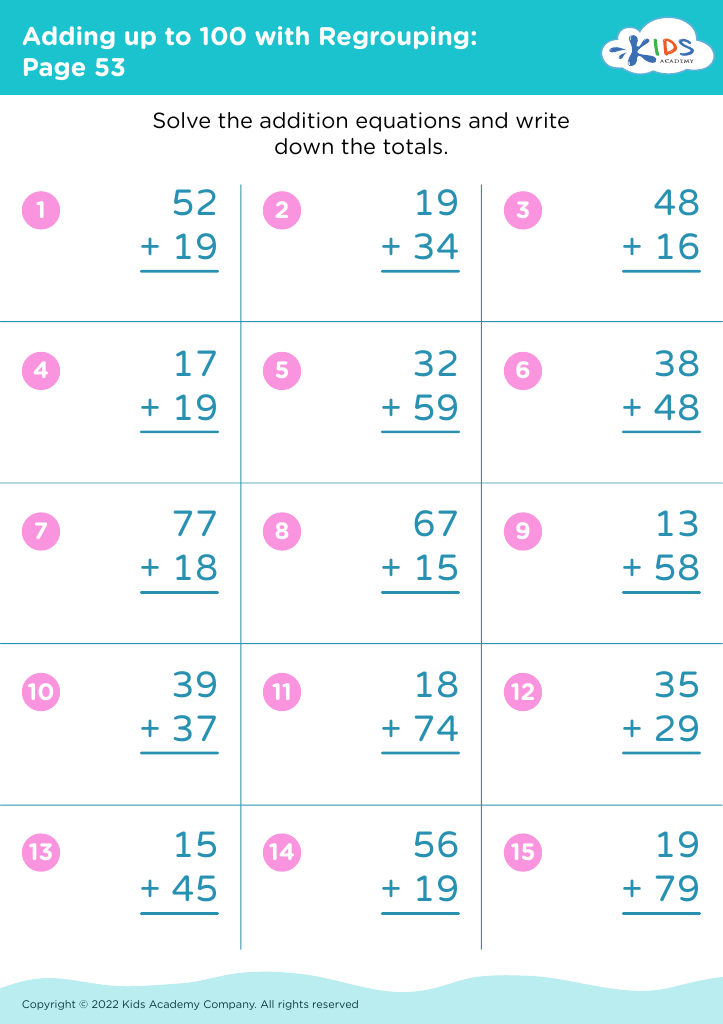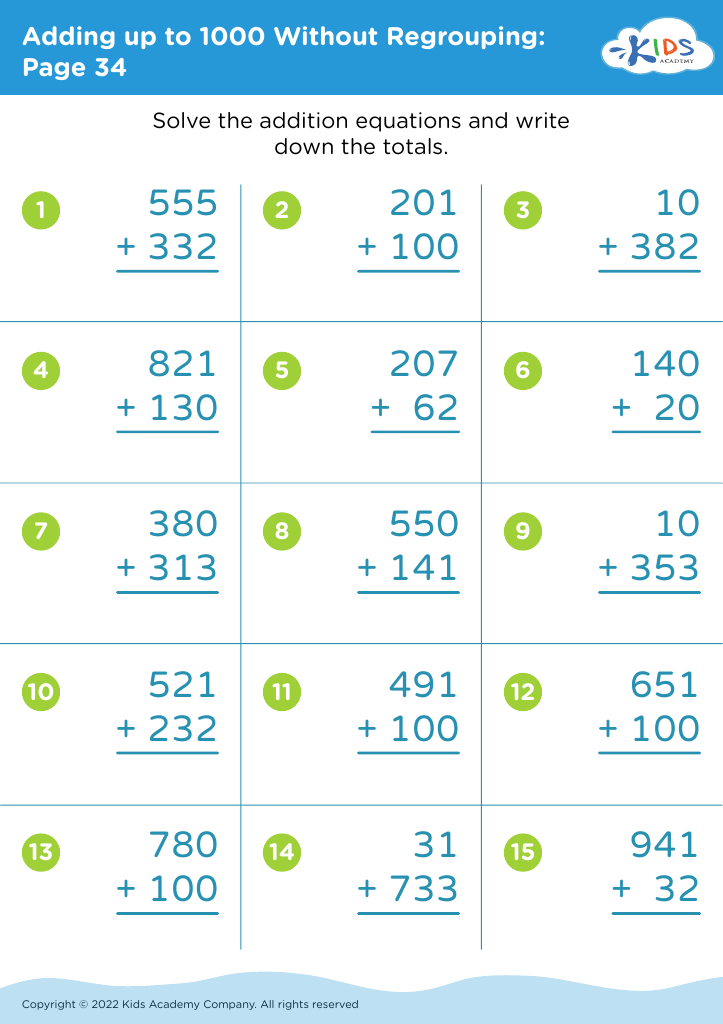Improve problem-solving Addition Worksheets for Ages 3-7
4 filtered results
-
From - To
Enhance your child's problem-solving skills with our engaging addition worksheets tailored for ages 3-7. These worksheets are designed to make learning fun and effective, featuring colorful visuals and age-appropriate exercises that encourage critical thinking. Our resources focus on real-life scenarios, ensuring that young learners can apply their math skills in practical ways. Each worksheet promotes step-by-step problem-solving techniques, helping children build a solid foundation in addition while boosting their confidence. Perfect for both classroom and home use, our worksheets support varied learning styles and foster a love for math. Start your child's mathematical journey today!
Improving problem-solving skills in addition for children aged 3-7 is crucial as it lays the foundational blocks for their future academic success and daily life. At this developmental stage, children's brains are remarkably plastic, making them highly receptive to learning new concepts. By enhancing their problem-solving abilities in addition, educators and parents can foster critical thinking skills, encouraging kids to approach challenges with creativity and resilience.
Effective problem-solving in addition goes beyond mere arithmetic; it cultivates persistence and confidence. When children learn to tackle problems systematically—whether through visual aids, manipulatives, or engaging activities—they not only grasp the concept of addition but also develop strategies to address various challenges. This prepares them for more complex mathematical operations later on.
Moreover, these skills have broader implications. Children who excel in problem-solving are likely to perform better academically, demonstrating stronger comprehension and retention abilities. They also develop social skills through collaborative problem-solving, learning how to communicate and work with others. In essence, prioritizing the development of problem-solving skills in addition significantly contributes to a child’s overall cognitive, emotional, and social growth, equipping them for future complexities in school and beyond.





















